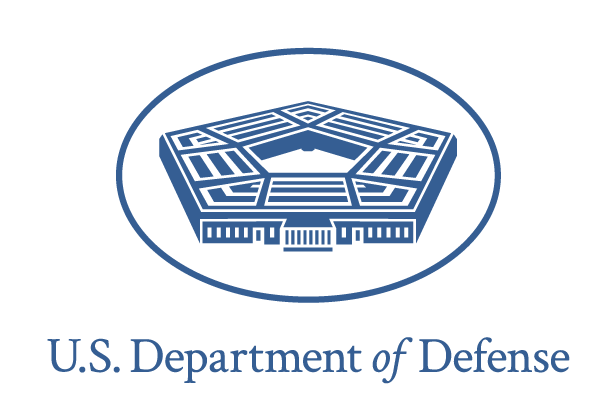Company Directory - United States Department of Defense
Company Details - United States Department of Defense

United States Department of Defense
WebsiteArlington, United States
The Pentagon is the headquarters of the United States Department of Defense, responsible for coordinating and supervising all agencies and functions of the government related to national security and the U.S. Armed Forces.
CCI Score
CCI Score: United States Department of Defense
-24.58
-1.21%
Latest Event
U.S. Airstrikes on Iranian Nuclear Facilities
The Pentagon revealed details following U.S. airstrikes on three Iranian nuclear facilities after President Trump declared that Iran is 'beat to hell'.
Take Action
So what can you do? It's time to make tough choices. Where will you cast your vote?
- Shop Alternatives
SEE ALL - Use Your Voice
OTHER TOOLS - Investigate
- Share the Score
SUPPORT CCI
ACCOMPLICE
United States Department of Defense is currently rated as an Accomplice.
Latest Events
 JUN272025
JUN272025The Pentagon revealed details following U.S. airstrikes on three Iranian nuclear facilities after President Trump declared that Iran is 'beat to hell'.
 JUN242025
JUN242025US Jewish lawmakers sent a letter to Secretary of Defense Pete Hegseth demanding explanations over the continued employment of press secretary Kingsley Wilson, who has made antisemitic and far-right related social media posts, including hate speech and conspiracy theories.
 MAY212025
MAY212025The U.S. Army, under the direction of the Department of Defense, will update transgender soldiers' records to display only their birth sex. This move, detailed in an internal memo and aligned with policies from the Trump administration, is viewed as an aggressive step that undermines transgender rights and harms military readiness.
 MAY082025
MAY082025The U.S. Department of Defense is reported to be leveraging President Trump's upcoming military parade as an opportunity to boost troop morale and recruitment. Critics, particularly from liberal media, have labeled the event and its use by the Pentagon as aligning with authoritarian, militaristic narratives.
 MAY012025
MAY012025US Defense Secretary Pete Hegseth warned Iran of military retaliation following claims that it armed Houthi fighters in Yemen. The warning, accompanied by a published screenshot of a Trump-era post, signals an escalation in US military posture at a time of ongoing air and naval strikes against Houthi targets.
 MAR302025
MAR302025The article details how a flawed administrative titling process within the military has led to false arrest records for service members. Despite evidence demonstrating that soldiers like Col. David Garcia have not committed crimes, the Department of Defense and Army Criminal Investigation Division continue to defend the process, leaving affected personnel with unjust records that jeopardize their careers and benefits. Critics, including veterans and lawyers, urge the Trump administration to intervene and reform the system.
 MAR262025
MAR262025A letter alleges that Biden-era Pentagon officials deliberately circumvented laws prohibiting federal agencies from lobbying Congress by pressuring defense contractors to oppose the reauthorization of the FCC’s spectrum auction authority.
-80
Political Contributions and Lobbying Efforts
March 30
The article details allegations that DOD officials and career staff engaged in a campaign to bypass anti-lobbying laws, pressuring defense contractors to lobby against legislation. This undermines democratic oversight and transparency, reflecting a significant breach in public and political behavior norms.
Biden DOD Officials Violated Lobbying Restrictions in Effort To Stop FCC Spectrum Auctions
 MAR242025
MAR242025In March 2025, the Department of Defense initiated a widespread removal of online content that celebrated the contributions of women and minority groups. Using AI-driven commands, posts highlighting historic military figures like the first female fighter pilot and minority heroes were selectively purged, with subsequent, inconsistent efforts to restore some content following public and internal backlash.
-60
Public and Political Behavior
March 30
The DoD’s decision to remove content celebrating diversity and historical minority achievements reflects a politically charged act that suppresses marginalized narratives. This action contributes to a culture of exclusion and aligns with authoritarian efforts to erase progressive contributions, negatively impacting public and political behavior.
-40
Provision of Repressive Technologies
March 30
The reliance on AI-driven removal algorithms to censor content that promotes diversity exemplifies the use of repressive technologies. This approach not only causes the loss of important historical records but also reinforces a system of automated ideological control that suppresses dissent and marginalized voices.
 MAR222025
MAR222025Amid growing criticism over excessive defense spending, the Department of Defense announced a $580 million cut from its $900 billion budget—a move widely seen as insufficient by critics like Bill Maher, who used the moment to highlight the entrenched military-industrial complex and its role in fostering authoritarian practices.
 MAR172025
MAR172025Legislation signed on March 17, 2025, allocates $141B to the Department of Defense for research, development, test and evaluation. The funding includes new authorities for initiating programs that focus on emerging technologies like AI, cyber, autonomy, and advanced computing. Critics argue that such investments deepen militarization and can empower state apparatuses aligned with authoritarian tendencies.
-30
Public and Political Behavior
March 22
The appropriations decision reflects a mode of public and political behavior that reinforces militaristic and centralized state power. The new funding, signed by an administration associated with authoritarian overtones, may embolden repressive measures and facilitate political consolidation of military strength.
Congress sets Pentagon research, development, test and evaluation spending at $141B
-25
Technology and Services Impact
March 22
The allocated funding emphasizes significant investments in technological research areas such as AI, cyber, advanced computing, and directed energy. This expansion of military tech capabilities raises concerns about developing tools that could be used for mass surveillance and repression, thereby potentially enhancing authoritarian state capacities.
Congress sets Pentagon research, development, test and evaluation spending at $141B
 MAR122025
MAR122025An investigative article reveals that the Department of Defense’s supply chains are opaque and increasingly dependent on suppliers from adversarial nations like China. The report highlights longstanding challenges—including a temporary halt in F-35 fighter deliveries in September 2022 due to a Chinese-sourced engine component—and calls for the adoption of distributed ledger technology to secure supply chain data. This exposure of vulnerabilities poses significant national security risks and reflects poorly on the department’s supply chain ethics and economic collaborations.
-50
Supply Chain Ethics
March 30
The article details significant gaps in the DoD’s knowledge of its supply chain, including reliance on suppliers from adversarial nations. These practices leave critical defense components vulnerable to tampering and undermine the ethical management of supply chains.
Finding Adversaries Hiding in the Defense Department’s Supply Chains
-40
Economic Collaboration
March 30
The report notes that a significant portion of critical components, including semiconductors, are sourced from China—a country with an authoritarian regime. This economic dependency not only highlights vulnerabilities within the defense industrial base but also represents problematic economic collaboration with adversarial entities.
Finding Adversaries Hiding in the Defense Department’s Supply Chains
 MAR042025
MAR042025On March 4, 2025, the Department of Defense issued a policy memo directing its contracting officers to remove Equal Employment Opportunity clauses from new contracts. This rollback of long-standing anti-discrimination requirements, originally established during the Johnson administration and later reinforced, aligns with cost-saving measures under the Trump administration, raising concerns about the erosion of workplace diversity and civil rights protections.
-70
Public and Political Behavior
March 22
The removal of EEO clauses undercuts decades of progress in promoting equal employment opportunities and combating discrimination, signaling a political decision that undermines civil rights. This aligns with measures that reduce accountability and support policies conducive to authoritarian practices.
DoD no longer requires Equal Employment Opportunity clauses in contracts
-60
Labor Relations and Human Rights Practices
March 22
Eliminating mandated EEO provisions in federal contracts risks undermining labor rights and could lead to environments where discrimination is tolerated. This policy change may have long-term negative impacts on worker protections and diversity within organizations engaged in DoD contracts.
DoD no longer requires Equal Employment Opportunity clauses in contracts
 FEB062025
FEB062025The US Department of Defense reported channeling $4,103,644 in political contributions during the 2024 cycle, while reporting no lobbying or outside spending. From an anti-fascist perspective, this use of state resources to influence political processes raises concerns about reinforcing entrenched power structures, even though the absence of lobbying is a mitigating factor.
-30
Political Contributions and Lobbying Efforts
March 22
The Department of Defense's disclosure of over $4.1 million in political contributions during the 2024 cycle, despite having zero reported lobbying or outside spending, is indicative of support for established political actors that may foster authoritarian dynamics. Anti-fascist critics argue that even state-sanctioned political spending can entrench power structures that undermine democratic accountability.
 FEB012025
FEB012025The Department of Defense announced a new media rotation policy that removes dedicated workspaces for longstanding media outlets such as NBC News and The New York Times, replacing them with slots for outlets known for favorable coverage of Donald Trump, like One America News Network and Breitbart News Network. The move has raised concerns about press freedom and government bias.
-70
Executive Political Engagement
March 30
The decision led by the Defense Department, including the appointment of a controversial former Fox News host as secretary of defense, reflects executive political engagement that favors Trump-friendly media. This politically motivated move undermines transparency and impairs the independent scrutiny of government actions, contributing to an authoritarian media environment.
Defense Department Swaps Out NBC News, New York Times And Other Media Outlets
-60
Media Influence and Propaganda
March 30
The media rotation policy selectively awards workspace access to outlets with histories of favorable reporting on the Trump administration, such as One America News Network and Breitbart News Network. This undermines balanced public discourse and promotes a controlled flow of information, effectively using media influence to bolster an authoritarian agenda.
Defense Department Swaps Out NBC News, New York Times And Other Media Outlets
 DEC232024
DEC232024Following the signing of the National Defense Authorization Act for Fiscal Year 2025 on December 23, 2024, the Department of Defense is now mandated to avoid contracting with companies that employ outside consultants engaged in federal lobbying for Chinese military companies. This move is seen as a proactive measure to limit foreign influence and uphold national security, aligning with anti-fascist principles by reducing the risk of authoritarian influence in defense contracting.
+70
Public and Political Behavior
March 22
The enforcement of this provision demonstrates a strong commitment to ensuring that defense contracts are not compromised by lobbyists with ties to foreign military interests. By instituting measures that prevent the retention of lobbyists who may favor Chinese military companies, the Department of Defense is taking a clear stand to safeguard national security and mitigate potential authoritarian influence in its contracting practices.
New Law Bars Defense Contractors From Retaining Certain Outside Lobbyists
 JUL282024
JUL282024A July 28, 2024 article examines ethical challenges within military supply chains linked to the U.S. Department of Defense, highlighting concerns such as forced labor, inadequate wages, and limited supplier transparency that adversely affect local communities.
-40
Labor Relations and Human Rights Practices
April 3
The article underscores serious labor issues within military supply chains, including forced labor and exploitative working conditions. These practices raise significant human rights concerns and suggest that the DoD’s procurement processes may be complicit in unethical labor practices.
-30
Supply Chain Ethics
April 3
The piece details a lack of transparency and accountability in the DoD's supply chain processes, which can obscure unethical sourcing practices and facilitate corruption. This absence of clear ethical oversight contributes negatively to the overall human rights record.
 APR012024
APR012024A National Action Plan on Responsible Business Conduct issued by the US government outlines enhanced human rights due diligence requirements for federal contractors, with the Department of Defense among the agencies expected to increase oversight on ethical procurement and supply chain practices.
+50
Public and Political Behavior
April 3
The National Action Plan demonstrates progressive public policy by promoting accountability and ethical oversight among federal agencies, including the DoD. By being part of this multi-agency effort to strengthen human rights practices in federal contracting, the DoD is aligning with values that increase transparency and promote responsible governance.
+70
Business Practices and Ethical Responsibility
April 3
The guidance emphasizes the need for federal contractors to adopt robust human rights due diligence and ethical business practices. By being named among the agencies responsible for enforcing these standards, the DoD is supporting progressive measures that enhance accountability in government procurement practices.
 MAR112024
MAR112024The U.S. Department of Defense has published its fiscal year 2025 budget request emphasizing significant investments in advanced military technologies, cyber and space capabilities, and infrastructure modernization. While framed as a necessary enhancement to national security, the scale of militarization and technological investment raises concerns among anti-fascist groups about the potential expansion of state repressive capacities and the entrenchment of a powerful military-industrial complex.
-10
Public and Political Behavior
March 22
The public release of this expansive defense budget is a demonstration of state power and a political statement that reinforces militaristic approaches. From an anti-fascist perspective, such demonstrations can be seen as encouraging a culture of excess military spending and centralized power, potentially lending credibility to authoritarian practices.
Department of Defense Releases the President's Fiscal Year 2025 Defense Budget
-10
Technology and Services Impact
March 22
Substantial investment in cutting‐edge defense technologies—including cyber systems and space capabilities—raises concerns about dual-use applications that may facilitate state surveillance and repression. This aggressive advancement in technological infrastructure is viewed critically by those wary of expanded state control.
Department of Defense Releases the President's Fiscal Year 2025 Defense Budget
-10
Economic and Structural Influence
March 22
The massive allocation toward modernizing military infrastructure and bolstering the defense industrial base reinforces the economic power of the military complex. This consolidation of economic and structural influence can perpetuate systems that favor authoritative state control, a concern for anti-fascist advocates.
Department of Defense Releases the President's Fiscal Year 2025 Defense Budget
 FEB292024Department of Defense Accelerates AI-Driven Military Capabilities Amid Rising Authoritarian Threats
FEB292024Department of Defense Accelerates AI-Driven Military Capabilities Amid Rising Authoritarian Threats-63.05
The Department of Defense is rapidly embracing AI technologies, including the development of autonomous weapons, deepfake capabilities, and AI-driven decision-making systems. Critics argue that these advances not only risk dehumanizing warfare, but also contribute to an authoritarian military-industrial complex that undermines democratic accountability and increases the potential for catastrophic errors in lethal force decisions.
-70
Public and Political Behavior
March 22
The DoD's accelerated push for AI integration into military strategy—such as deploying autonomous weapons and reducing human oversight in lethal decision-making—directly undermines democratic principles and increases the risk of authoritarian practices. The close ties between military leadership and technology advisors further exacerbate concerns about transparency and accountability.
A.I. Joe: The Dangers of Artificial Intelligence and the Military
-80
Technology and Services Impact
March 22
The integration of AI in military operations, especially in developing autonomous weapons and advanced surveillance systems, heightens the risk of dehumanized warfare. This technological shift not only makes lethal decision-making increasingly automated but also paves the way for repressive technologies that may be used to suppress dissent and oversight.
A.I. Joe: The Dangers of Artificial Intelligence and the Military
-65
Economic and Structural Influence
March 22
The ramp-up in AI-driven systems is reshaping defense budget priorities and reinforcing an entrenched military-industrial complex. Increased funding for these technologies, often without adequate oversight, strengthens structural influences that can promote authoritarian practices while marginalizing ethical considerations in military spending.
A.I. Joe: The Dangers of Artificial Intelligence and the Military
 NOV222023
NOV222023The U.S. Department of Defense has advanced international norms by endorsing non-binding guidelines for the responsible use of artificial intelligence in military applications. The policy emphasizes auditability, rigorous testing, and ethical governance of AI systems, which supports transparency and accountability in military technology.
+80
Public and Political Behavior
March 22
The Department of Defense's endorsement of responsible AI measures demonstrates robust public and political leadership. By promoting international norms and transparent practices for military AI, the DoD shows a high degree of accountability and a commitment to ethical public behavior, reducing risks associated with the misuse of military technology.
+75
Technology and Services Impact
March 22
The guidelines emphasize responsible military use of AI by ensuring systems are auditable, subject to rigorous testing, and designed to prevent unintended behavior. This reflects a strong commitment to ethical technology practices and reduces the likelihood that military AI technologies could be used for oppressive or authoritarian purposes.
 JUN092023
JUN092023On June 9, 2023, the US Department of Defense issued a new Interim Rule amending the DFARS provisions. The rule replaces the previous forced labor certification requirement with a representation that mandates offerors to conduct robust supply chain due diligence to ensure that products made with forced labor from Xinjiang are not procured with DoD funds.
+70
Supply Chain Ethics
April 3
The DoD's move to amend DFARS from a forced labor certification to a representation requirement enforces stricter supply chain due diligence. This action is aimed at preventing the use of products manufactured with forced labor in defense contracts, thereby promoting ethical sourcing and protection of vulnerable labor groups. It represents a significant step toward mitigating human rights abuses in supply chains.
New US Government Forced Labor Actions - National Law Review
 JAN012023
JAN012023The proposed Department of Defense Ethics and Transparency Act of 2023 aims to curb the revolving door between DoD officials and defense contractors, restrict lobbying by former officials, and enforce greater transparency in defense contracting. The legislation is designed to address long-standing concerns about the undue influence of defense contractors on national security decision-making.
+70
Public and Political Behavior
March 30
By proposing measures that limit the revolving door between senior DoD officials and defense contractors, the act aims to reduce corrupting corporate influence on national security. This is viewed as a positive step toward curbing authoritarian practices and enhancing transparency in public political behavior.
PDF The Department of Defense Ethics and Transparency Act of 2023
+50
Business Practices and Ethical Responsibility
March 30
The act mandates reforms for improved business practices within the Department of Defense, including heightened disclosure requirements and restrictions on post-employment activities. These measures promote ethical responsibility and accountability, reducing potential conflicts of interest and the risk of authoritarian influence in defense contracting.
PDF The Department of Defense Ethics and Transparency Act of 2023
Alternatives

Arlington, USA
-10.84
Reston, United States
-5.44

Corporation
-42.85

Bethesda, United States
-22.83

Irvine, United States
-57.52

Falls Church, United States
11.00

United States
9.19
United States
-5.65

Bethesda, United States
-8.02

Berlin, Germany
17.51
Industries
- 334511
- Search, Detection, Navigation, Guidance, Aeronautical, and Nautical System and Instrument Manufacturing
- 336414
- Guided Missile and Space Vehicle Manufacturing
- 541330
- Engineering Services
- 541519
- Other Computer Related Services
- 541690
- Other Scientific and Technical Consulting Services
- 928110
- National Security
- 541712
- Research and Development in the Physical, Engineering, and Life Sciences (Biotechnology)
- 332995
- Other Ordnance and Accessories Manufacturing